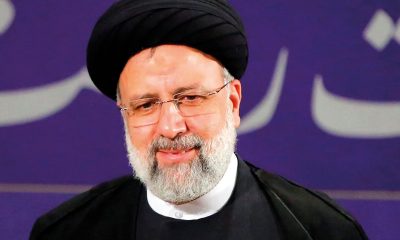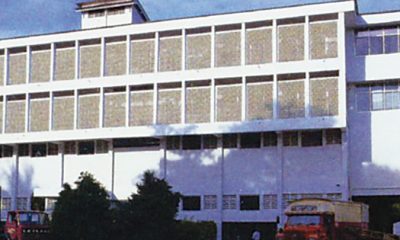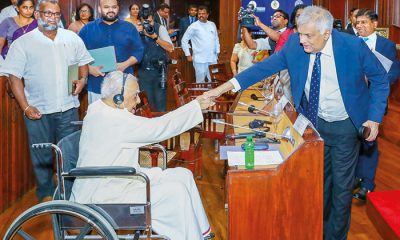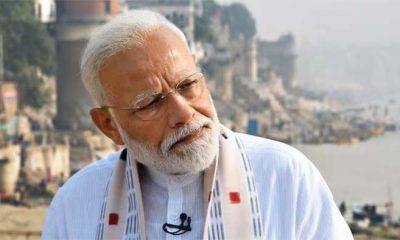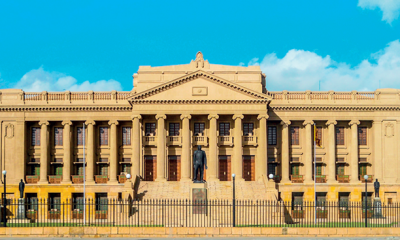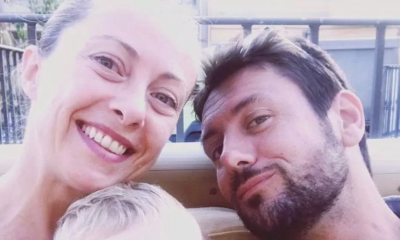Features
Succession to DS, the Hartal and Dudley’s resignation
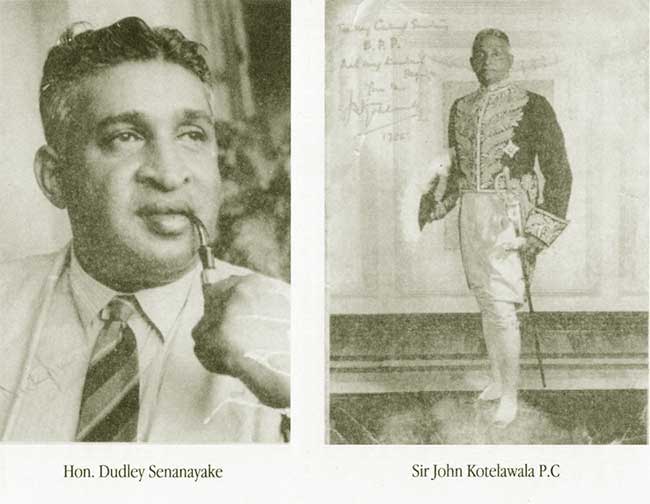
(Excerpted from Memoirs of a Cabinet Secretary by BP Peiris)
When D.S. fell off his horse on Galle Face, Lord Soulbury, Governor-General, was in England and Alan Rose, Chief Justice, was acting. He had all the powers of the Governor-General, but did not take the responsibility of appointing the new Prime Minister. Instead, the following communique was issued by the Governor-General’s office:
“His Excellency the Officer Administering the Government invited the Ministers to meet him this morning at Queen’s House. His Excellency informed the Ministers that a few days before Lord Soulbury’s departure from the Island he had discussed with His Excellency what should be done in the event of the office of Prime Minister falling vacant during Lord Soulbury’s absence.
“His Excellency stated that Lord Soulbury, had then expressed an intention of returning to Ceylon immediately in this eventuality.
“In view of this, His Excellency spoke last night on the telephone to Lord Soulbury who informed him that he would be arriving in the Island on Wednesday.
“Having regard to this, His Excellency stated that, in his opinion, it would be more appropriate to await Lord Soulbury’s arrival before a decision is made us to who should be invited to form an administration.”
Soulbury had a difficult task. It was his duty to ensure the continuance of a stable Government. Between the Premier’s death and the Governor-General’s arrival in the Island, there was considerable political and personal maneuvering, and Rose’s house in Bullers Road had a stream of callers all offering gratuitous advice as to who should be sent for. One person went as far as to send Rose some hot hoppers for breakfast.
Rose kept a diary of the events, the callers, the times they called, and the suggestions they made – a document which ought to make very interesting reading if it is ever published. The Times of Ceylon commented:
“There is at present very clear indication of the successor. The country expects the uncorrupted continuance of the peace and prosperity which the late Premier insured in the nation’s life. His principles of democratic fair play and progress are the nation’s watchword, and the new Prime Minister must be one who can foster those objectives.”
It is clear, reading between the lines, that Sir John Kotelawala was not too popular and was unacceptable. There was no reason to assume that he could not form a stable Government. But 19 members of the Government Parliamentary Party informed Dudley that in the event of his being called upon to form a government they would give their wholehearted support and co-operation. They also intimated their solemn determination not to support an administration formed by anyone else. The Tamil Congress informed the Governor-General that Sir John was not acceptable to their party and would support a government formed by Dudley.
The Governor-General, on his arrival, sent for Dudley and invited him to form a Government. He asked me to summon the Ministers to meet him in the Cabinet Room. It was not a Cabinet meeting as he (Dudley) had not accepted office. At this meeting all the Ministers were present except Sir John. Here, I must debunk a story which has been published in “The Premier Stakes, or Up the Garden Path”, which some persons thought was written by Sir John, but the authorship of which he has publicly denied.
In this book, it is stated “Even the Secretary to the Cabinet was against me and did not summon me to the meeting.” I have never refused or neglected to summon a Minister to a meeting. I cannot imagine any Secretary wilfully omitting to do so. I got all the Ministers on the telephone, but could not get Sir John. Seven Ministers were in my room while I was telephoning, with Minister Sittampalam seated right in front of me at my table. He saw and heard me telephoning.
I tried Sir John’s office, Kandawala, the Orient Club, the Sinhalese Sports Club, Sravasti, the M.Ps’ Hostel, his mother’s house and finally got his brother Justin to whom I gave the message. He was not to be found at any of these places. It was one minute to 2 p.m., the time fixed for the meeting and I gave it up. Immediately after the meeting, which lasted only a few minutes, Sittampalam phoned me from his own office and said, “Peiris, you said you couldn’t get Sir John: he’s in his office.” I merely asked him what the insinuation was. “You saw me telephoning all those members”, I said, and there was no further comment from him. There were a lot of undercurrents working at the time.
Now the gossips and the rumour-mongers started whispering. It was said that D.S. had advised Soulbury to send for Dudley in the event of his death. A more fantastic story, attacking the honour and memory of a dead man, is difficult to imagine. It is within my personal knowledge that D.S. never gave the Governor-General the advice attributed to him. I also know who concocted the story for reasons best known to them. I use the plural because there were two.
In view of the highly controversial nature of the whole transaction, I beg the reader’s pardon if, after tickling his curiosity in this mysterious way, I say “Thus far and no further. My lips must continue to remain under seal.” D.S. might have been ignorant of Constitutional Law, but he was no ignoramus. He knew that, in the matter of the succession to the Premiership, he could not exercise a right similar to that exercised in Buddhist Ecclesiastical Law under the rule of Sisyanu Sisya Paramparawa. The Constitutional position is set out by Winston Churchill in his War Memoirs:
“It is not customary for a Prime Minister to advice the Sovereign officially upon his successor unless he is asked to do so. As it was war time, I sent the King, in response to a request he had made to me in conversation at our last weekly interview, the following letter [He was going to cross the submarine-infested Atlantic for discussions with President Roosevelt].
10 Downing Street
Whitehall
June 16, 1942
Sir,
In case of my death on this journey I undertake, I avail myself of Your Majesty’s gracious permission to advise that you should entrust the formation of a new government to Mr Anthony Eden, the Secretary of State for Foreign affairs, who is in my mind the outstanding Minister in the largest political party in the House of Commons and in the National Government over which I have the honour to preside, and who I am sure will be found capable of conducting Your Majesty’s affairs with the resolution, experience and capacity which these grievous times require.
I have the honour to remain,
Your Majesty’s faithful and devoted servant and subject,
Winston S. Churchill
Dudley was punctual at the meeting of Ministers he had summoned. No record was kept. He informed the Ministers that he had been asked to form a Government and inquired whether the Ministers would serve under him in the same capacities. All said “Aye”. He then reported back to Queen’s House and was appointed Prime Minister on March 27, 1952.
Sir John, who has always been an officer and a gentleman and who has never been vindictive, issued the following statement:
“I have been associated with the late Prime Minister for over 22 years in the task on building a free nation and should be the last man to wish the freedom we have gained to be overcome by the destructive forces which threaten to overrun our land. I congratulate the new Prime Minister on his appointment. Every right-thinking man will wish him well in the task that lies ahead of him. I am steadfastly of the opinion that the United National Party is the only political party that can save the country and I call upon all my countrymen to rally round the new Prime Minister with the same measure of support they gave his father. My own support will always be available to serve the cause of democracy in my Motherland.”
The new Prime Minister, in his first broadcast talk to the nation, said:
“If there is any lesson that I have learnt from my father, it is that no task, however difficult, should be shirked if it is in the country’s interest that it should be discharged.” He added the following words, significant in the context of present day politics: “I pledge that the administration of this country will be so carried that every one amongst you, whatever the language he speaks, whatever the religion he professes, whatever the race to which he belongs, may live and move on terms of absolute equality.”
On April 4, the Prime Minister decided to dissolve Parliament and go to the country. He stated that though he had the promise of co-operation from a majority of the country, he felt it was his duty to obtain a mandate from the people at the earliest opportunity to work for the ideals for which his father had worked during his lifetime. In a talk to the nation, the Prime Minister said:
“Barely a week has passed since I accepted the invitation of His Excellency the Governor-General to form a government on the death of my revered father. The promises of co-operation which I received from my colleagues in Parliament, as well as from representatives of all sections of the community gave me strength to undertake this task. To my fellow-citizens throughout the Island, I give my heartfelt thanks for the assurance of help and co-operation which 1 have received.
“When I undertook the important responsibilities that my late father bore so well, in my message to the nation, I pledged myself to tread the path he wished us to follow.
“We know very well that my father bent all his energies to achieve the ideal of a free Lanka. Once that freedom was attained, he spent himself, in spite of his health, without any thought of his own comfort or of his personal interests, to preserve that freedom, to realize the concept of a united nation and to establish a stable government.
“The striking demonstration of national feeling shown at his death made it clear to me that my father had become a symbol, not only of the ideals I have mentioned, but of the new Lanka which he hoped to build upon these foundations; the new Lanka whose people, free from want, from sickness and ignorance, through the functioning of democratic institutions, could take their place once again in the comity of the free and happy peoples of the world.
“I have thought very deeply during the last few days of the duty I owe to the people of Lanka. Only some of the ideals for which my father worked have been achieved. In the achievement of these, I have no doubt he gave his life. I have been invited to carry on the work interrupted by his death. If I am to be finally chosen to do so, I feel that I should give the people an opportunity, at this most important moment in Lanka’s history, of expressing their own wish through the exercise of the right which belongs to every citizen of electing those who will administer the affairs of the country on their behalf.
“As you are all aware, Parliament need not be dissolved till the end of this year. Though I have the promise of co-operation from a majority of the members of Parliament as well as the good wishes of the country, I feel it my duty to obtain a mandate from the people at the earliest opportunity.
I have therefore advised His Excellency the Governor-General to dissolve Parliament and to announce a day for the nomination of candidates for election to a new Parliament.
“If it be your wish that I should act as the first servant of the people, I pledge myself to honour, to the best of my ability, just as my father did when he was entrusted with similar duties, the trust reposed in me.”
Dudley was returned at the general election. His first Cabinet meeting after the election was on June 5, 1952. There were some of his father’s Ministers, but there were new faces also. Bulankulame Dissawa was Minister of Lands, Dr M. C. M. Kaleel, Minister of Labour, Mr C. W. W. Kannangara in charge of Local Government, V. V. Nalliah in charge of Posts, and the Prime Minister’s cousin, R. G. Senanayake, was given Commerce and Trade.
My draft of the Speech from the Throne was approved with amendments and on the following day, the Cabinet met to consider the estimates for the next financial year. They came to an important decision regarding the salaries of the judges of the Supreme Court. The salary was increased to Rs 36,000 a year with a corresponding increase in the salary of the Chief Justice, and the then prevailing difference in salary between old-entrant and new-entrant judges was abolished.
Henceforth, all judges would be equal and their salaries would not depend on the date of their appointment. This was a most welcome change; but the decision was rescinded a month later, for what reasons I cannot remember. There is no salary distinction today as there are no longer any old-entrant judges.
The question now arose whether, in view of the complexity of our laws and the increasing number of appeals to the Privy Council, a Ceylonese should not be appointed to the Judicial Committee. The request had been made by the Judicial Committee itself, and the proposal was acceptable to the Ceylon Government. Mr L. M. D. de Silva, a former Judge of the Supreme Court was willing to accept the post if it was offered to him. Mr de Silva was accordingly appointed a Privy Councillor.
August 12, 1953, has been called the day of the hartal. I was asked at noon to summon an emergency meeting of the Cabinet for 1.15 pm. Disturbances had occurred in the city of Colombo and in some of the outstations. Trains had stopped running; trains had been stopped and passengers, guards and engine drivers assaulted; railway wagons had been damaged; road transport had been completely disorganized and no omnibuses were running; communications had been interfered with; public officers had been attacked in the performance of their duties; shops had been broken into and shopkeepers intimidated; there was general intimidation on a large scale; the Pettah Police Barracks had been stoned; the Manning Market had been set on fire; the Dompe Police Station had been attacked; there was complete lawlessness at Hanwella; and in one or two places the Police had been compelled to use their firearms.
Essential services had been disrupted. There was no traffic at all on the roads and I got to my office in the Fort from my house in Havelock Road (where I had come for lunch) within five minutes, carrying in my car, for the first time in my life, my loaded revolver in the door-pocket. The Inspector-General of Police who was summoned asked that the Police and the Military, who had been stretched to the maximum, be given adequate powers to preserve law and order. He did not mince matters. He asked for power to shoot.
Shoot whom? Your own people? I saw a gentlemanly pipe-smoking Prime Minister hesitate. The order was not given. Instead there was a declaration of a State of Emergency and the provisions of the Public Security Ordinance were brought into operation and the necessary regulations promulgated.
A legal flaw was now noticed. The provisions of the Public Security Ordinance could only be brought into operation when a state of public emergency in fact existed. The Cabinet thought that the law should be amended to enable the necessary Proclamation to be issued where a state of emergency was apprehended and before it had actually arisen. The Legal Draftsman was directed to examine the legislative powers that had been taken in other Commonwealth countries, particularly India, to meet any emergency and to prepare the draft legislation.
It was decided that our Ordinance should be amended on the lines of section 352 of the Constitution of India to enable a Proclamation of emergency to be issued before the actual occurrence of the emergency, if the Governor-General was satisfied that there was imminent danger thereof. The subject of Civil Defence was allocated to Sir Oliver Goonetilleke who had handled the subject expertly under Admiral Layton.
A most unusual thing happened at about this time. The Cabinet was to meet at two in the afternoon to discuss our rice stocks which were at a dangerously low level. The relevant Cabinet paper was not prepared in my office; it was not roneoed; it was typed, four copies at a time, in the Ministry of Commerce and Trade. The Minister, R. G. Senanayake, had M. F. de S. Jayaratne as his Permanent Secretary. Twelve of the Ministers had assembled at two but Jayaratne had not sent me any papers by then.
Ministers were becoming impatient. Forty-five minutes had elapsed before Jayaratne came panting into the Cabinet Lobby and put a bundle of papers in my hand saying “Here are 15 copies”. The Ministers’ impatience had turned to anger by this time. There was no time for me to check the draft. Each copy consisted of six pages of typewritten matter fastened by a clip. I counted the clips and there were 15.
I distributed 12 copies to the Ministers, one to Ranasinha (the Secretary) and kept one for myself. The one extra copy was on my table when the discussion began. The meeting which began in the afternoon ended after 3 a.m. the next day, with a short break for dinner, Dudley asked the Ministers to return their copies to the Secretary. I came back to my room far too tired to do anything except to dictate the minutes.
I again counted the clips – there were 15 – and locked the papers up in my steel cupboard. The next day’s Times of Ceylon carried the entire memorandum, including the appendices, in the middle page. Dudley had warned the Ministers to keep the matter a top secret. Soon after the Times was out, Sir Oliver asked me over the telephone how this had happened. I told him that the Ministers all returned their copies to me and that these were at that moment in my steel locker. Dudley then got on to me and said, “Percy, this is a very serious matter. I want you to check on each one of the returned copies. See me in the office in half an hour.”
As was to be expected, there were the fifteen clips, each holding six sheets of foolscap. But the Prime Minister had asked me to check on each copy and, in doing so, I came across a dud one. The clip was there, the six sheets were there but the subject matter contained in the six sheets had nothing to do with the subject matter of the memorandum. What was I to do? My brain was befuddled. I was in charge of 15 copies, and now I had 14 and the press had published the memorandum verbatim.
What could have been more easy than for me to have released the fifteenth copy to the Times and say. “I don’t know how it could have happened. I was so tired and it was such a rush, I only counted the clips and there’s a dud set of papers in one clip.” I knew that would not go down with Dudley. The country had accepted him as a gentleman. He and I were colleagues at the Bar amid friends and, if a third person was not present, we addressed each other by our Christian names.
But the most gentlemanly Prime Minister would not tolerate a crook as his Cabinet Secretary. I went to him in trepidation. “What is this about a dud set?” Dudley asked and I gave him the six sheets of paper with the clip. He read the papers line by line and came across two words altered in ink and initialled in the margin. He asked me whose initials they were and I said I did not know.
He called his Secretary Atukorale who identified the initials as being those of Jayaratne. My heart was palpitating. “Golly, old boy, you’re lucky” I thought. So this was a Ministry Paper, and Minister R. G. had most inadvertently and most carelessly given me the wrong papers and taken the right ones away! Now that I was on a safe wicket, I turned round to Dudley and, in Atukorale’s presence said something for which he might have turned me out of his office, but did not. I said, “Sir, it is a pity that you don’t
get the co-operation of your colleagues that Atu and I get from our staffs.” All he said, deep in thought and with bowed head was “Yes, I know.
A Cabinet Secretary’s life is not all beer and skittles. I had just had a lucky and a narrow shave.In October 1953, Dudley resigned his office for reasons of health and Sir John Kotelawala was appointed Prime Minister.
Features
The heart-friendly health minister

by Dr Gotabhya Ranasinghe
Senior Consultant Cardiologist
National Hospital Sri Lanka
When we sought a meeting with Hon Dr. Ramesh Pathirana, Minister of Health, he graciously cleared his busy schedule to accommodate us. Renowned for his attentive listening and deep understanding, Minister Pathirana is dedicated to advancing the health sector. His openness and transparency exemplify the qualities of an exemplary politician and minister.
Dr. Palitha Mahipala, the current Health Secretary, demonstrates both commendable enthusiasm and unwavering support. This combination of attributes makes him a highly compatible colleague for the esteemed Minister of Health.
Our discussion centered on a project that has been in the works for the past 30 years, one that no other minister had managed to advance.
Minister Pathirana, however, recognized the project’s significance and its potential to revolutionize care for heart patients.
The project involves the construction of a state-of-the-art facility at the premises of the National Hospital Colombo. The project’s location within the premises of the National Hospital underscores its importance and relevance to the healthcare infrastructure of the nation.
This facility will include a cardiology building and a tertiary care center, equipped with the latest technology to handle and treat all types of heart-related conditions and surgeries.
Securing funding was a major milestone for this initiative. Minister Pathirana successfully obtained approval for a $40 billion loan from the Asian Development Bank. With the funding in place, the foundation stone is scheduled to be laid in September this year, and construction will begin in January 2025.
This project guarantees a consistent and uninterrupted supply of stents and related medications for heart patients. As a result, patients will have timely access to essential medical supplies during their treatment and recovery. By securing these critical resources, the project aims to enhance patient outcomes, minimize treatment delays, and maintain the highest standards of cardiac care.
Upon its fruition, this monumental building will serve as a beacon of hope and healing, symbolizing the unwavering dedication to improving patient outcomes and fostering a healthier society.We anticipate a future marked by significant progress and positive outcomes in Sri Lanka’s cardiovascular treatment landscape within the foreseeable timeframe.
Features
A LOVING TRIBUTE TO JESUIT FR. ALOYSIUS PIERIS ON HIS 90th BIRTHDAY

by Fr. Emmanuel Fernando, OMI
Jesuit Fr. Aloysius Pieris (affectionately called Fr. Aloy) celebrated his 90th birthday on April 9, 2024 and I, as the editor of our Oblate Journal, THE MISSIONARY OBLATE had gone to press by that time. Immediately I decided to publish an article, appreciating the untiring selfless services he continues to offer for inter-Faith dialogue, the renewal of the Catholic Church, his concern for the poor and the suffering Sri Lankan masses and to me, the present writer.
It was in 1988, when I was appointed Director of the Oblate Scholastics at Ampitiya by the then Oblate Provincial Fr. Anselm Silva, that I came to know Fr. Aloy more closely. Knowing well his expertise in matters spiritual, theological, Indological and pastoral, and with the collaborative spirit of my companion-formators, our Oblate Scholastics were sent to Tulana, the Research and Encounter Centre, Kelaniya, of which he is the Founder-Director, for ‘exposure-programmes’ on matters spiritual, biblical, theological and pastoral. Some of these dimensions according to my view and that of my companion-formators, were not available at the National Seminary, Ampitiya.
Ever since that time, our Oblate formators/ accompaniers at the Oblate Scholasticate, Ampitiya , have continued to send our Oblate Scholastics to Tulana Centre for deepening their insights and convictions regarding matters needed to serve the people in today’s context. Fr. Aloy also had tried very enthusiastically with the Oblate team headed by Frs. Oswald Firth and Clement Waidyasekara to begin a Theologate, directed by the Religious Congregations in Sri Lanka, for the contextual formation/ accompaniment of their members. It should very well be a desired goal of the Leaders / Provincials of the Religious Congregations.
Besides being a formator/accompanier at the Oblate Scholasticate, I was entrusted also with the task of editing and publishing our Oblate journal, ‘The Missionary Oblate’. To maintain the quality of the journal I continue to depend on Fr. Aloy for his thought-provoking and stimulating articles on Biblical Spirituality, Biblical Theology and Ecclesiology. I am very grateful to him for his generous assistance. Of late, his writings on renewal of the Church, initiated by Pope St. John XX111 and continued by Pope Francis through the Synodal path, published in our Oblate journal, enable our readers to focus their attention also on the needed renewal in the Catholic Church in Sri Lanka. Fr. Aloy appreciated very much the Synodal path adopted by the Jesuit Pope Francis for the renewal of the Church, rooted very much on prayerful discernment. In my Religious and presbyteral life, Fr.Aloy continues to be my spiritual animator / guide and ongoing formator / acccompanier.
Fr. Aloysius Pieris, BA Hons (Lond), LPh (SHC, India), STL (PFT, Naples), PhD (SLU/VC), ThD (Tilburg), D.Ltt (KU), has been one of the eminent Asian theologians well recognized internationally and one who has lectured and held visiting chairs in many universities both in the West and in the East. Many members of Religious Congregations from Asian countries have benefited from his lectures and guidance in the East Asian Pastoral Institute (EAPI) in Manila, Philippines. He had been a Theologian consulted by the Federation of Asian Bishops’ Conferences for many years. During his professorship at the Gregorian University in Rome, he was called to be a member of a special group of advisers on other religions consulted by Pope Paul VI.
Fr. Aloy is the author of more than 30 books and well over 500 Research Papers. Some of his books and articles have been translated and published in several countries. Among those books, one can find the following: 1) The Genesis of an Asian Theology of Liberation (An Autobiographical Excursus on the Art of Theologising in Asia, 2) An Asian Theology of Liberation, 3) Providential Timeliness of Vatican 11 (a long-overdue halt to a scandalous millennium, 4) Give Vatican 11 a chance, 5) Leadership in the Church, 6) Relishing our faith in working for justice (Themes for study and discussion), 7) A Message meant mainly, not exclusively for Jesuits (Background information necessary for helping Francis renew the Church), 8) Lent in Lanka (Reflections and Resolutions, 9) Love meets wisdom (A Christian Experience of Buddhism, 10) Fire and Water 11) God’s Reign for God’s poor, 12) Our Unhiddden Agenda (How we Jesuits work, pray and form our men). He is also the Editor of two journals, Vagdevi, Journal of Religious Reflection and Dialogue, New Series.
Fr. Aloy has a BA in Pali and Sanskrit from the University of London and a Ph.D in Buddhist Philosophy from the University of Sri Lankan, Vidyodaya Campus. On Nov. 23, 2019, he was awarded the prestigious honorary Doctorate of Literature (D.Litt) by the Chancellor of the University of Kelaniya, the Most Venerable Welamitiyawe Dharmakirthi Sri Kusala Dhamma Thera.
Fr. Aloy continues to be a promoter of Gospel values and virtues. Justice as a constitutive dimension of love and social concern for the downtrodden masses are very much noted in his life and work. He had very much appreciated the commitment of the late Fr. Joseph (Joe) Fernando, the National Director of the Social and Economic Centre (SEDEC) for the poor.
In Sri Lanka, a few religious Congregations – the Good Shepherd Sisters, the Christian Brothers, the Marist Brothers and the Oblates – have invited him to animate their members especially during their Provincial Congresses, Chapters and International Conferences. The mainline Christian Churches also have sought his advice and followed his seminars. I, for one, regret very much, that the Sri Lankan authorities of the Catholic Church –today’s Hierarchy—- have not sought Fr.
Aloy’s expertise for the renewal of the Catholic Church in Sri Lanka and thus have not benefited from the immense store of wisdom and insight that he can offer to our local Church while the Sri Lankan bishops who governed the Catholic church in the immediate aftermath of the Second Vatican Council (Edmund Fernando OMI, Anthony de Saram, Leo Nanayakkara OSB, Frank Marcus Fernando, Paul Perera,) visited him and consulted him on many matters. Among the Tamil Bishops, Bishop Rayappu Joseph was keeping close contact with him and Bishop J. Deogupillai hosted him and his team visiting him after the horrible Black July massacre of Tamils.
Features
A fairy tale, success or debacle

Sri Lanka-Singapore Free Trade Agreement
By Gomi Senadhira
senadhiragomi@gmail.com
“You might tell fairy tales, but the progress of a country cannot be achieved through such narratives. A country cannot be developed by making false promises. The country moved backward because of the electoral promises made by political parties throughout time. We have witnessed that the ultimate result of this is the country becoming bankrupt. Unfortunately, many segments of the population have not come to realize this yet.” – President Ranil Wickremesinghe, 2024 Budget speech
Any Sri Lankan would agree with the above words of President Wickremesinghe on the false promises our politicians and officials make and the fairy tales they narrate which bankrupted this country. So, to understand this, let’s look at one such fairy tale with lots of false promises; Ranil Wickremesinghe’s greatest achievement in the area of international trade and investment promotion during the Yahapalana period, Sri Lanka-Singapore Free Trade Agreement (SLSFTA).
It is appropriate and timely to do it now as Finance Minister Wickremesinghe has just presented to parliament a bill on the National Policy on Economic Transformation which includes the establishment of an Office for International Trade and the Sri Lanka Institute of Economics and International Trade.
Was SLSFTA a “Cleverly negotiated Free Trade Agreement” as stated by the (former) Minister of Development Strategies and International Trade Malik Samarawickrama during the Parliamentary Debate on the SLSFTA in July 2018, or a colossal blunder covered up with lies, false promises, and fairy tales? After SLSFTA was signed there were a number of fairy tales published on this agreement by the Ministry of Development Strategies and International, Institute of Policy Studies, and others.
However, for this article, I would like to limit my comments to the speech by Minister Samarawickrama during the Parliamentary Debate, and the two most important areas in the agreement which were covered up with lies, fairy tales, and false promises, namely: revenue loss for Sri Lanka and Investment from Singapore. On the other important area, “Waste products dumping” I do not want to comment here as I have written extensively on the issue.
1. The revenue loss
During the Parliamentary Debate in July 2018, Minister Samarawickrama stated “…. let me reiterate that this FTA with Singapore has been very cleverly negotiated by us…. The liberalisation programme under this FTA has been carefully designed to have the least impact on domestic industry and revenue collection. We have included all revenue sensitive items in the negative list of items which will not be subject to removal of tariff. Therefore, 97.8% revenue from Customs duty is protected. Our tariff liberalisation will take place over a period of 12-15 years! In fact, the revenue earned through tariffs on goods imported from Singapore last year was Rs. 35 billion.
The revenue loss for over the next 15 years due to the FTA is only Rs. 733 million– which when annualised, on average, is just Rs. 51 million. That is just 0.14% per year! So anyone who claims the Singapore FTA causes revenue loss to the Government cannot do basic arithmetic! Mr. Speaker, in conclusion, I call on my fellow members of this House – don’t mislead the public with baseless criticism that is not grounded in facts. Don’t look at petty politics and use these issues for your own political survival.”
I was surprised to read the minister’s speech because an article published in January 2018 in “The Straits Times“, based on information released by the Singaporean Negotiators stated, “…. With the FTA, tariff savings for Singapore exports are estimated to hit $10 million annually“.
As the annual tariff savings (that is the revenue loss for Sri Lanka) calculated by the Singaporean Negotiators, Singaporean $ 10 million (Sri Lankan rupees 1,200 million in 2018) was way above the rupees’ 733 million revenue loss for 15 years estimated by the Sri Lankan negotiators, it was clear to any observer that one of the parties to the agreement had not done the basic arithmetic!
Six years later, according to a report published by “The Morning” newspaper, speaking at the Committee on Public Finance (COPF) on 7th May 2024, Mr Samarawickrama’s chief trade negotiator K.J. Weerasinghehad had admitted “…. that forecasted revenue loss for the Government of Sri Lanka through the Singapore FTA is Rs. 450 million in 2023 and Rs. 1.3 billion in 2024.”
If these numbers are correct, as tariff liberalisation under the SLSFTA has just started, we will pass Rs 2 billion very soon. Then, the question is how Sri Lanka’s trade negotiators made such a colossal blunder. Didn’t they do their basic arithmetic? If they didn’t know how to do basic arithmetic they should have at least done their basic readings. For example, the headline of the article published in The Straits Times in January 2018 was “Singapore, Sri Lanka sign FTA, annual savings of $10m expected”.
Anyway, as Sri Lanka’s chief negotiator reiterated at the COPF meeting that “…. since 99% of the tariffs in Singapore have zero rates of duty, Sri Lanka has agreed on 80% tariff liberalisation over a period of 15 years while expecting Singapore investments to address the imbalance in trade,” let’s turn towards investment.
Investment from Singapore
In July 2018, speaking during the Parliamentary Debate on the FTA this is what Minister Malik Samarawickrama stated on investment from Singapore, “Already, thanks to this FTA, in just the past two-and-a-half months since the agreement came into effect we have received a proposal from Singapore for investment amounting to $ 14.8 billion in an oil refinery for export of petroleum products. In addition, we have proposals for a steel manufacturing plant for exports ($ 1 billion investment), flour milling plant ($ 50 million), sugar refinery ($ 200 million). This adds up to more than $ 16.05 billion in the pipeline on these projects alone.
And all of these projects will create thousands of more jobs for our people. In principle approval has already been granted by the BOI and the investors are awaiting the release of land the environmental approvals to commence the project.
I request the Opposition and those with vested interests to change their narrow-minded thinking and join us to develop our country. We must always look at what is best for the whole community, not just the few who may oppose. We owe it to our people to courageously take decisions that will change their lives for the better.”
According to the media report I quoted earlier, speaking at the Committee on Public Finance (COPF) Chief Negotiator Weerasinghe has admitted that Sri Lanka was not happy with overall Singapore investments that have come in the past few years in return for the trade liberalisation under the Singapore-Sri Lanka Free Trade Agreement. He has added that between 2021 and 2023 the total investment from Singapore had been around $162 million!
What happened to those projects worth $16 billion negotiated, thanks to the SLSFTA, in just the two-and-a-half months after the agreement came into effect and approved by the BOI? I do not know about the steel manufacturing plant for exports ($ 1 billion investment), flour milling plant ($ 50 million) and sugar refinery ($ 200 million).
However, story of the multibillion-dollar investment in the Petroleum Refinery unfolded in a manner that would qualify it as the best fairy tale with false promises presented by our politicians and the officials, prior to 2019 elections.
Though many Sri Lankans got to know, through the media which repeatedly highlighted a plethora of issues surrounding the project and the questionable credentials of the Singaporean investor, the construction work on the Mirrijiwela Oil Refinery along with the cement factory began on the24th of March 2019 with a bang and Minister Ranil Wickremesinghe and his ministers along with the foreign and local dignitaries laid the foundation stones.
That was few months before the 2019 Presidential elections. Inaugurating the construction work Prime Minister Ranil Wickremesinghe said the projects will create thousands of job opportunities in the area and surrounding districts.
The oil refinery, which was to be built over 200 acres of land, with the capacity to refine 200,000 barrels of crude oil per day, was to generate US$7 billion of exports and create 1,500 direct and 3,000 indirect jobs. The construction of the refinery was to be completed in 44 months. Four years later, in August 2023 the Cabinet of Ministers approved the proposal presented by President Ranil Wickremesinghe to cancel the agreement with the investors of the refinery as the project has not been implemented! Can they explain to the country how much money was wasted to produce that fairy tale?
It is obvious that the President, ministers, and officials had made huge blunders and had deliberately misled the public and the parliament on the revenue loss and potential investment from SLSFTA with fairy tales and false promises.
As the president himself said, a country cannot be developed by making false promises or with fairy tales and these false promises and fairy tales had bankrupted the country. “Unfortunately, many segments of the population have not come to realize this yet”.
(The writer, a specialist and an activist on trade and development issues . )


